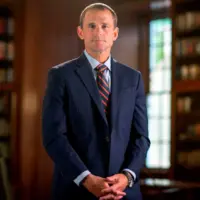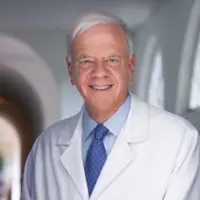Excellent facility, doctors are actually helping you one day at a time and receptionists always make sure everything is ok with your case.
About UVA Health Child and Adolescent Psychiatry Clinic
The Child and Adolescent Psychiatry Clinic on Old Ivy Way in Charlottesville, Virginia is a part of the University of Virginia’s Health Psychiatry Department and operates on weekdays from 8am until 5 pm. While this clinic is for outpatient services, they’re connected to the UVA Hospital and more intensive outpatient programs and inpatient treatment can be accessed through this mental and behavioral health clinic.
Three Main Treatment Goals
Even though this center doesn’t explicitly tackle substance abuse, they can address co-occurring disorders that often accompany drugs. The three main therapy objectives for addiction and drug abuse treatment is to help youth stop using drugs, to minimize the symptoms of drug withdrawal while helping individuals detox from substances safely, and to help youth stay that way and avoid relapse.
Therapy not only deals with the physical symptoms and behaviors associated with substance abuse, but also the issues and choices that led to the addiction and developing the skills to not make the same choices in the future. This can include school related problems and eating disorders. Learning life and coping skills while building confidence and a sense of self-worth helps individuals set healthier goals and see their potential more fully.
Expert Staff and the Old College Try in Old Ivy Way
At the time of writing, Dr. Jennifer Penberthy is the head of the Psychiatry and Neurobehavioral Sciences Department and has built a team of experienced professionals to help youth through treatment. Their team can assist you whether as an inpatient in the UVA hospital units or through clinics like this renowned Child and Adolescent Psychiatry Clinic.
I also think it’s neat that the center is near several sports stadiums, including Lannigan Field. You can attend games during your downtime or maybe exercise and stretch your legs. It’s a healthier way of coping than relying on drugs.
Dual Diagnosis and Other Mental Health Conditions
The clinic also deals with and addresses other mental health concerns and dual diagnosis cases through comprehensive case management, psychiatric and mental health assessments and one-on-one therapy sessions. These services and evaluations will help the team, youth, and family create a care action plan that will meet the needs of each client.
Health insurance is accepted, including State and Federal insurance and child health programs. Financial aid and assistance in enrolling in programs is available through the center.
Latest Reviews
Rehab Score
Location
Accepted Insurance
Other Forms of Payment
Medicaid is a state based program that helps lower-income individuals and families pay for healthcare. Medicaid covers addiction treatment so those enrolled can use their coverage to pay for rehab. When a program accepts Medicaid the client often pays very little or nothing out of their own pocket.
Private insurance refers to any kind of healthcare coverage that isn't from the state or federal government. This includes individual and family plans offered by an employer or purchased from the Insurance Marketplace. Every plan will have different requirements and out of pocket costs so be sure to get the full details before you start treatment.
Self-pay involves paying for treatment out of your own pocket. You can use savings or credit, get a personal loan, or receive help from family and friends to fund your treatment. If you don't have insurance or your insurance plan doesn't cover a specific program, self-pay can help ensure you still get the care you need.
Financial aid can take many forms. Centers may have grants or scholarships available to clients who meet eligibility requirements. Programs that receive SAMHSA grants may have financial aid available for those who need treatment as well. Grants and scholarships can help you pai for treatment without having to repay.
Sliding scale payments are based on a client's income and family size. The goal is to make treatment affordable to everyone. By taking these factors into account, addiction recovery care providers help ensure that your treatment does not become a financial burden to you or your family, eliminating one barrier to care.
Medicare is a federal program that provides health insurance for those 65 and older. It also serves people under 65 with chronic and disabling health challenges. To use Medicare for addiction treatment you need to find a program that accepts Medicare and is in network with your plan. Out of pocket costs and preauthorization requirements vary, so always check with your provider.
Military members, veterans, and eligible dependents have access to specific insurance programs that help them get the care they need. TRICARE and VA insurance can help you access low cost or no cost addiction and mental health treatment. Programs that accept military insurance often have targeted treatment focused on the unique challenges military members, veterans, and their families face.
Addiction Treatments
Levels of Care
Outpatient Programs (OP) are for those seeking mental rehab or drug rehab, but who also stay at home every night. The main difference between outpatient treatment (OP) and intensive outpatient treatment (IOP) lies in the amount of hours the patient spends at the facility. Most of the time an outpatient program is designed for someone who has completed an inpatient stay and is looking to continue their growth in recovery. Outpatient is not meant to be the starting point, it is commonly referred to as aftercare.
Treatments
Mental health rehabs focus on helping individuals recover from mental illnesses like bipolar disorder, clinical depression, anxiety disorders, schizophrenia, and more. Mental health professionals at these facilities are trained to understand and treat mental health issues, both in individual and group settings.
Clinical Services
Group therapy is any therapeutic work that happens in a group (not one-on-one). There are a number of different group therapy modalities, including support groups, experiential therapy, psycho-education, and more. Group therapy involves treatment as well as processing interaction between group members.
In individual therapy, a patient meets one-on-one with a trained psychologist or counselor. Therapy is a pivotal part of effective substance abuse treatment, as it often covers root causes of addiction, including challenges faced by the patient in their social, family, and work/school life.
Amenities
-
Private Setting
Staff & Accreditations
Staff

James E. Ryan, JD
University President

K. Craig Kent, MD
CEO

Melina Kibbe, MD, FACS, FAHA
Chief Health Affairs Officer

Jason Lineen, MBA
Chief Strategy Officer
Accreditations

The Substance Abuse and Mental Health Services Administration (SAMHSA) is a branch of the U.S. Department of Health and Human Services. Established in 1992 by congress, SAMHSA's mission is to reduce the impact of substance abuse and mental illness on American's communities.
SAMHSA Listed: Yes
Contact Information
310 Old Ivy Way
1st Floor
Charlottesville VA, 22903

